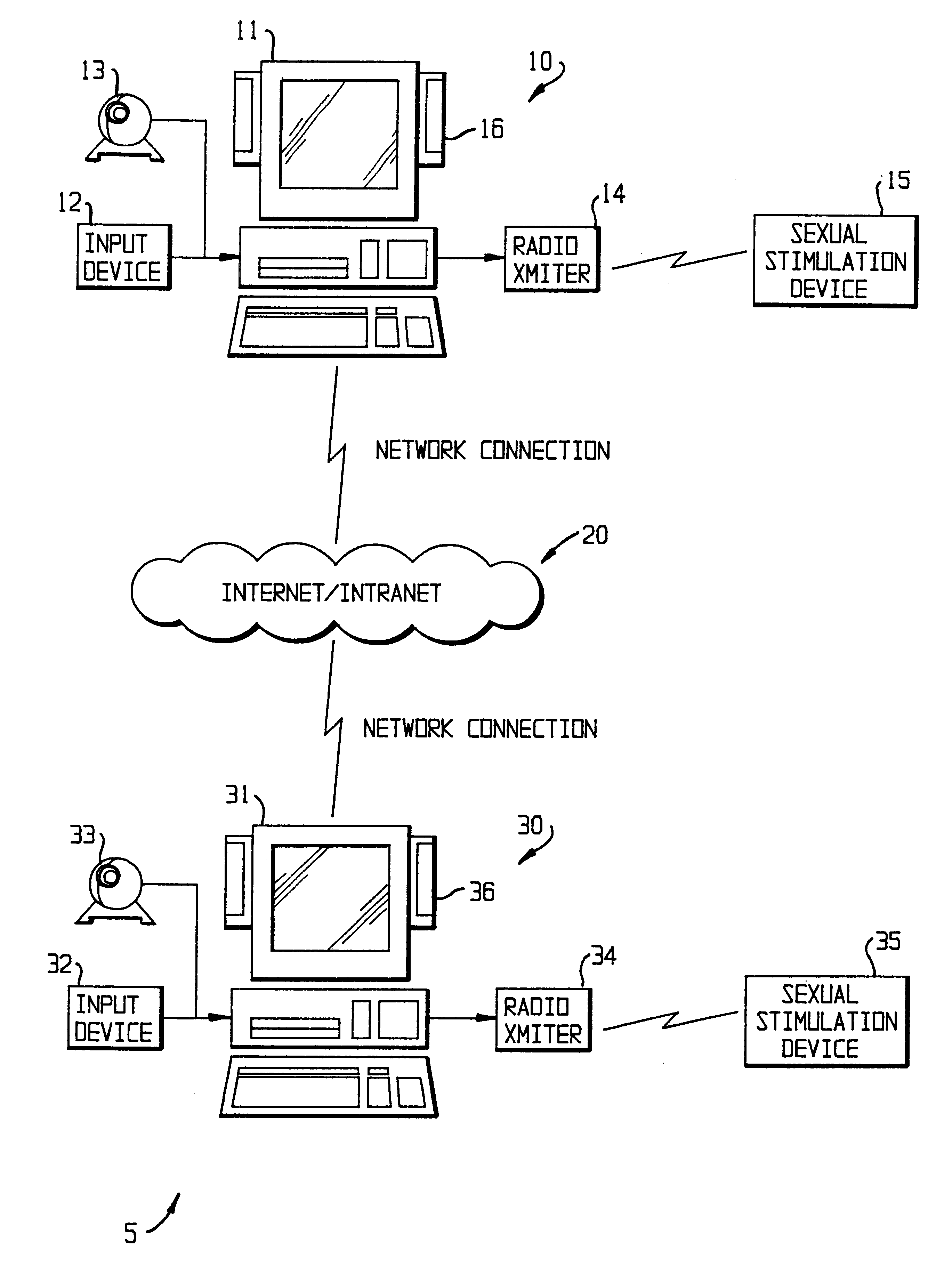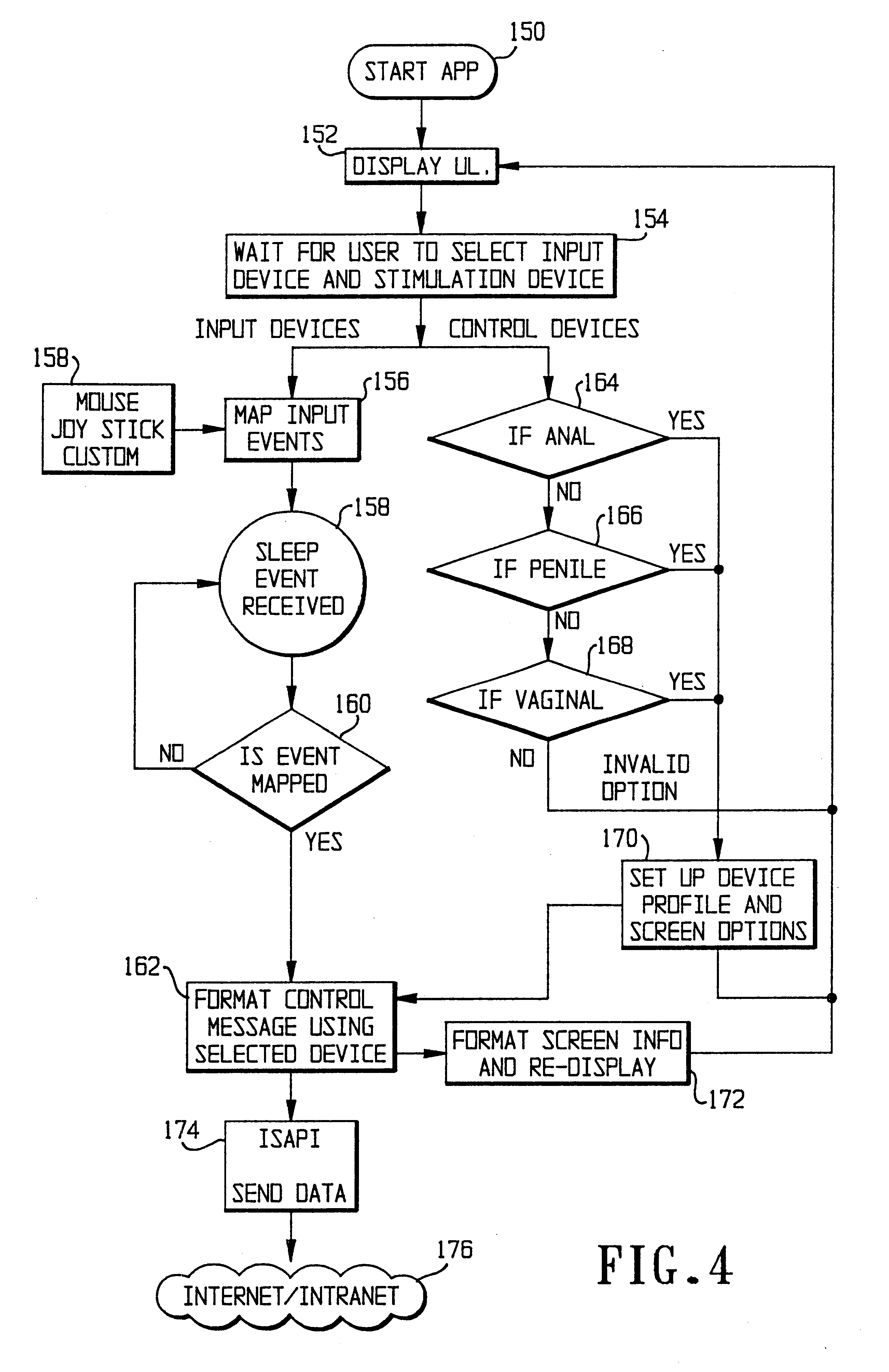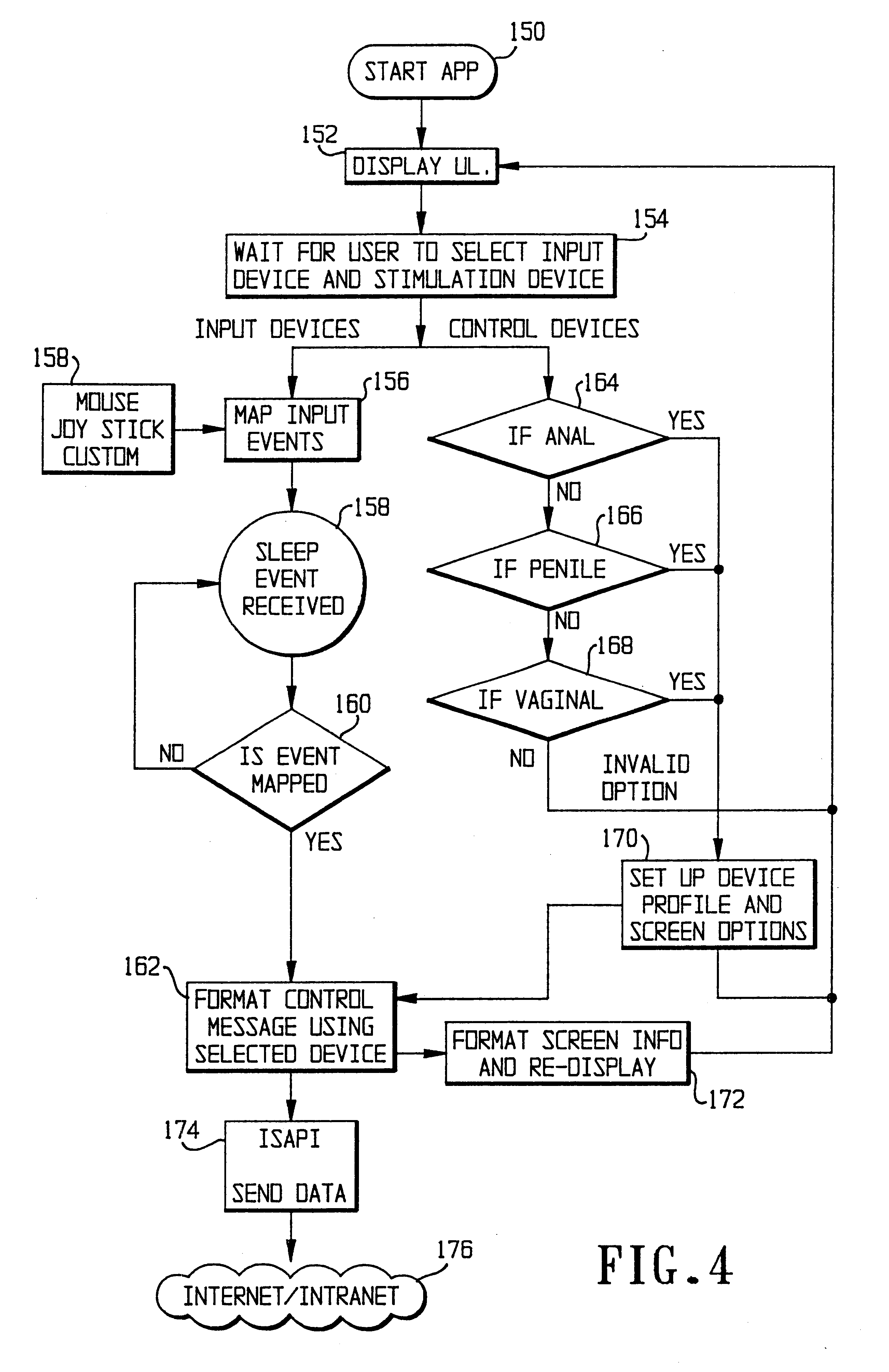On August 17, 1998, three men applied for a patent that envisioned how the future might fuck, before we even had the technology to apply it. Today, it’s officially expired, ending a complicated 20-year relationship between teledildonics and patent law.
Warren J. Sandvick, Jim W. Hughes, and David Alan Atkinson called their patent “Method and device for interactive virtual control of sexual aids using digital computer networks,” or U.S. Patent No. 6,368,268. Sandvick is the president of a Texas company called HasSex, which seems to exist mostly to hold this patent. Since the patent was filed, it’s commonly been referred to as “the teledildonics patent.” In 11 incredible diagrams, it outlines how computers could connect to a device, that connects to another device, that connects to someone else’s setup and voilà: Everyone’s getting off, through the internet.
Videos by VICE

Utility patents like this one—which protect how something works, not how it looks—have a term of 20 years that starts on the patent application filing date.
Teledildonics, or at least the idea of them, has been around longer than the World Wide Web itself. Technology pioneer Ted Nelson is credited for coining the phrase “teledildonics” in 1975, but David Rothchild’s 1993 essay “High-Tech Sex” is one of the earliest visions of what teledildonics would really look like. He defined it as “the virtual-reality technology that may one day allow people wearing special bodysuits, headgear and gloves to engage in tactile sexual relations from separate, remote locations via computers connected to phone lines,” and that’s pretty much still spot-on. Teledildonics are internet-connected sex toys, put simply.
It was a more optimistic time, just five years before Sandvick, Hughes, and Atkinson even applied for the teledildonics patent. Twenty years later, in 2015, they sold the patent to Tzu Technologies, LLC, which immediately flipped it into a trolling effort. Tzu went after several companies that it claimed violated the patent, and killed a few of them, including an open source vibrator called the Comingle that raised nearly $60,000 in an Indiegogo campaign. Other nascent teledildonic startups caught in the blitz included Holland Haptics, Vibease, Internet Service, Frixion, and Winzz; several of these were forced to pay Tzu more than $50,000.

With its newfound, ruthless owners, the patent earned the Electronic Frontier Foundation’s Stupid Patent of the Month in 2015, for being “ridiculously broad” and a case of patent trolling—squatting on a patent that’s so broad and obscure that it can be used to take legal action against a large number of companies, some of which might rather pay the patent holder than fight them in court. “There was nothing novel, nonobvious, or even patentable about this claim,” attorney Vera Ranieri wrote for the EFF. “It never should have been issued. Doing it with a computer (literally) does not make something patentable.”
A merciful end to a bullshit patent troll might seem like a unilateral good thing, but it’s been the environment sex tech developers have operated under for almost as long as their industry has existed, at least at an internet-connected capacity. Some things may change for the better—like easier, faster innovation without the threat of getting one’s ass sued off. Others might take that freedom and zip past important issues of data privacy and good interfaces before we’ve solved those problems.
“This basically opens up another vector for sex tech business,” teledildonics developer Kyle Machulis told me in a Twitter direct message. “People will be able to make hardware that can be controlled over the internet, and will have less to worry about in terms of legal repercussions due to patent coverage of the field. That said, they still have to worry about the legal aspects of storage and transfer of sensitive data, as well as building interfaces that people can have sex through.”

It’s not that patents have been holding developers back from better security and innovation, Machulis said. “It’s just basic lack of interest from the tech sector in general.”
Stephanie Alys, co-founder and Chief Pleasure Officer of MysteryVibe, told me in an email that her company had to pay to license the patent and create the “Crescendo,” its first app-controlled toy. The fact that it is now expiring will allow more smaller brands and new start-ups the freedom to experiment and innovate — which is exciting and encouraging,” she said. “We have so many exciting things happening in sextech, and considering it’s already difficult to find funding for ideas & generally get support from certain institutions, anything that further stifles innovation is a shame. I’m looking forward to the opportunities the expiration of this patent will afford.”
Like Machulis, however, Alys’ excitement is tempered with some cautiousness about charging ahead. “I think it’s important to note that, just because the teledildonics patent will lift, it doesn’t mean this should be a free for all without any thought,” she said. “Now, as the patent lifts, we’re interested in exploring and innovating, but want to make sure we (and others) don’t rush into it just because it’s possible. It’s a time during which we should really experiment, test out functionalities, and be patient until the right sort of innovation is executed, rather than repeating the mistakes that have been made.”
More
From VICE
-

Photo by Sean Gallup/Getty Images -

Westend61/Getty Images -

Simone Joyner/Getty Images -

Youth Code
